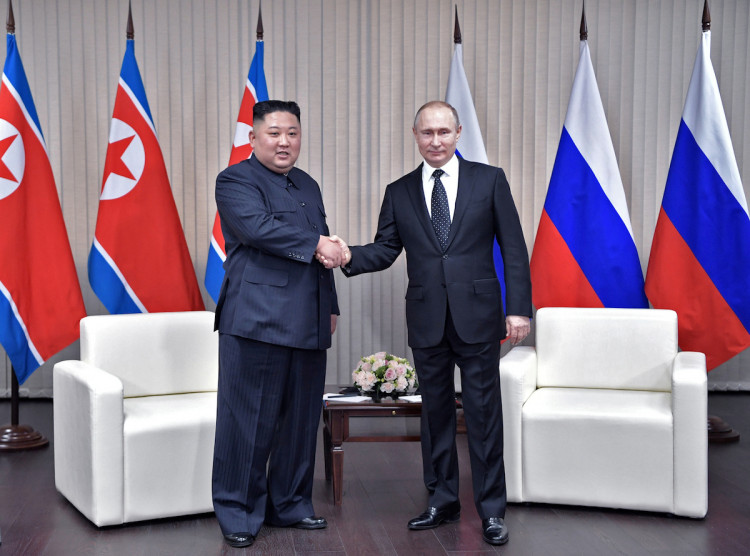Russia has blocked the annual renewal of a United Nations panel of experts tasked with monitoring enforcement of longstanding sanctions against North Korea, accusing the United States and its allies of ratcheting up military tensions in Asia and seeking to "strangle" the reclusive state. The move, which strikes a blow at the enforcement of a myriad of UN sanctions imposed after Pyongyang carried out its first nuclear test in 2006, underscores the dividend that North Korean leader Kim Jong Un has earned by moving closer to Russian President Vladimir Putin amid the ongoing war in Ukraine.
In a statement released on Friday, Russian Foreign Ministry spokeswoman Maria Zakharova said that major powers needed a new approach to North Korea, formally known as the Democratic People's Republic of Korea (DPRK). She argued that the UN Security Council could no longer use "old templates" in relation to the problems of the Korean Peninsula, and accused the United States of stoking military tensions while international restrictions had failed to improve the security situation, leading to severe humanitarian consequences for the North Korean population.
"The United States and its allies have clearly demonstrated that their interest does not extend beyond the task of 'strangling' the DPRK by all available means, and a peaceful settlement is not on the agenda at all," Zakharova said.
Russia's veto, which came during a Security Council vote on Thursday, is seen as a major turning point in the international sanctions regime against North Korea. The panel of experts, which has been renewed annually by the UN Security Council for 14 years, was set up to monitor violations of the sanctions imposed on Pyongyang since 2006 in response to its nuclear weapons program.
Zakharova claimed that the panel had lost all standards of objectivity and impartiality, turning into an "obedient tool" of North Korea's geopolitical opponents. "There is no point in saving it in this form," she added.
The veto illustrates just how far the Ukraine war, which triggered the deepest crisis in Russia's relations with the West since the 1962 Cuban Missile Crisis, has undermined big-power cooperation on other major global issues. Since Putin ordered the full-scale invasion of Ukraine in 2022, Moscow has gone out of its way to parade a renaissance of its relationship - including military ties - with Pyongyang.
Washington has accused North Korea of supplying Russia with missiles for use against Ukraine, assertions which have been dismissed by both the Kremlin and Pyongyang. For Putin, courting Kim allows him to needle Washington and its Asian allies while securing a deep supply of artillery for the Ukraine war. Meanwhile, for Kim, who has pledged to accelerate production of nuclear weapons to deter what he casts as U.S. provocations, Russia is a big power ally with deep stores of advanced missile, military, space, and nuclear technology.
The veto triggered a wave of condemnation from the U.S., U.K., South Korea, and other Western allies, who accused Russia of silencing the watchdog because it had begun to report on Moscow's own violations of the rules, specifically purchasing weapons from North Korea for use in Ukraine.
Ukraine's Foreign Minister Dmytro Kuleba said on social media that Russia's veto was tantamount to "a guilty plea" that it was using North Korean weapons in the war, while South Korea's representative at the UN criticized Russia's "blind self-centeredness" and said it had no justification "for disbanding the guardians" of the sanctions regime.
Russia has consistently denied using North Korean weapons, and its UN representative, Vasily Nebenzia, dismissed the accusations on Thursday, arguing that the panel of experts had no added value and had continued to focus on "trivial matters" not commensurate with the problems facing the peninsula.
Despite the impact of sanctions on its economy, North Korea has largely ignored the restrictions, with Kim Jong Un rapidly continuing nuclear weapons development and pursuing a more aggressive and dangerous military strategy in recent years. The UN experts say North Korea continues to flout sanctions through increased missile test launches, developing nuclear weapons, and engaging in a campaign of cyber attacks.




